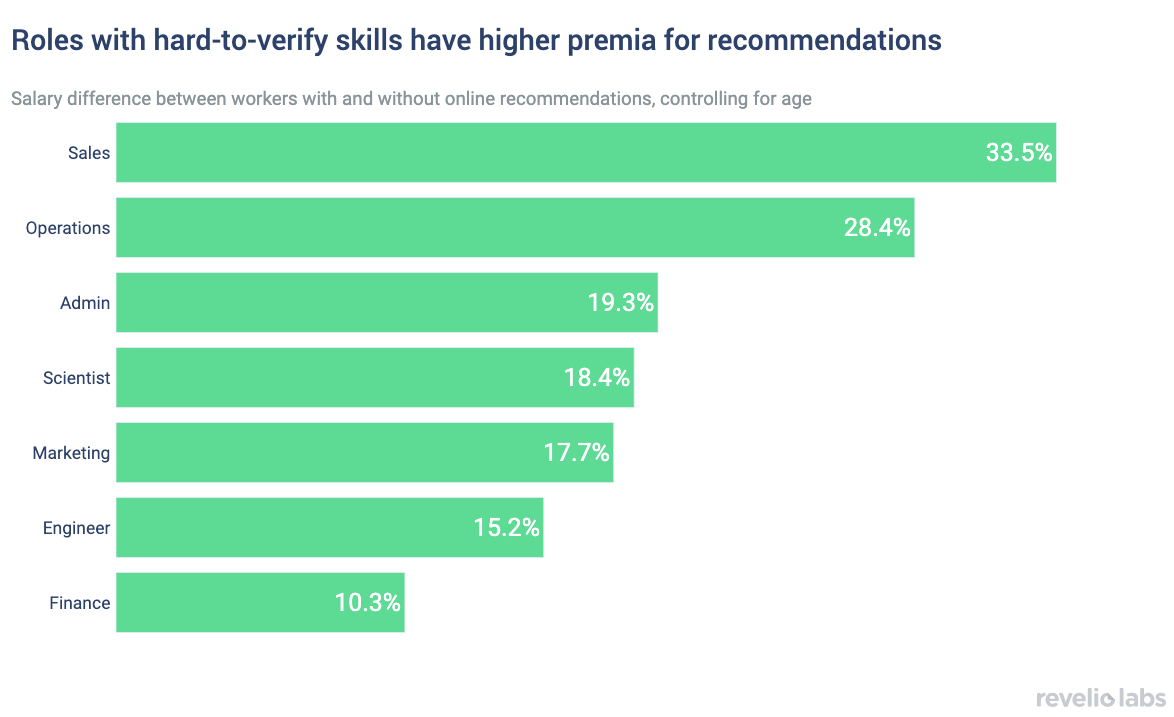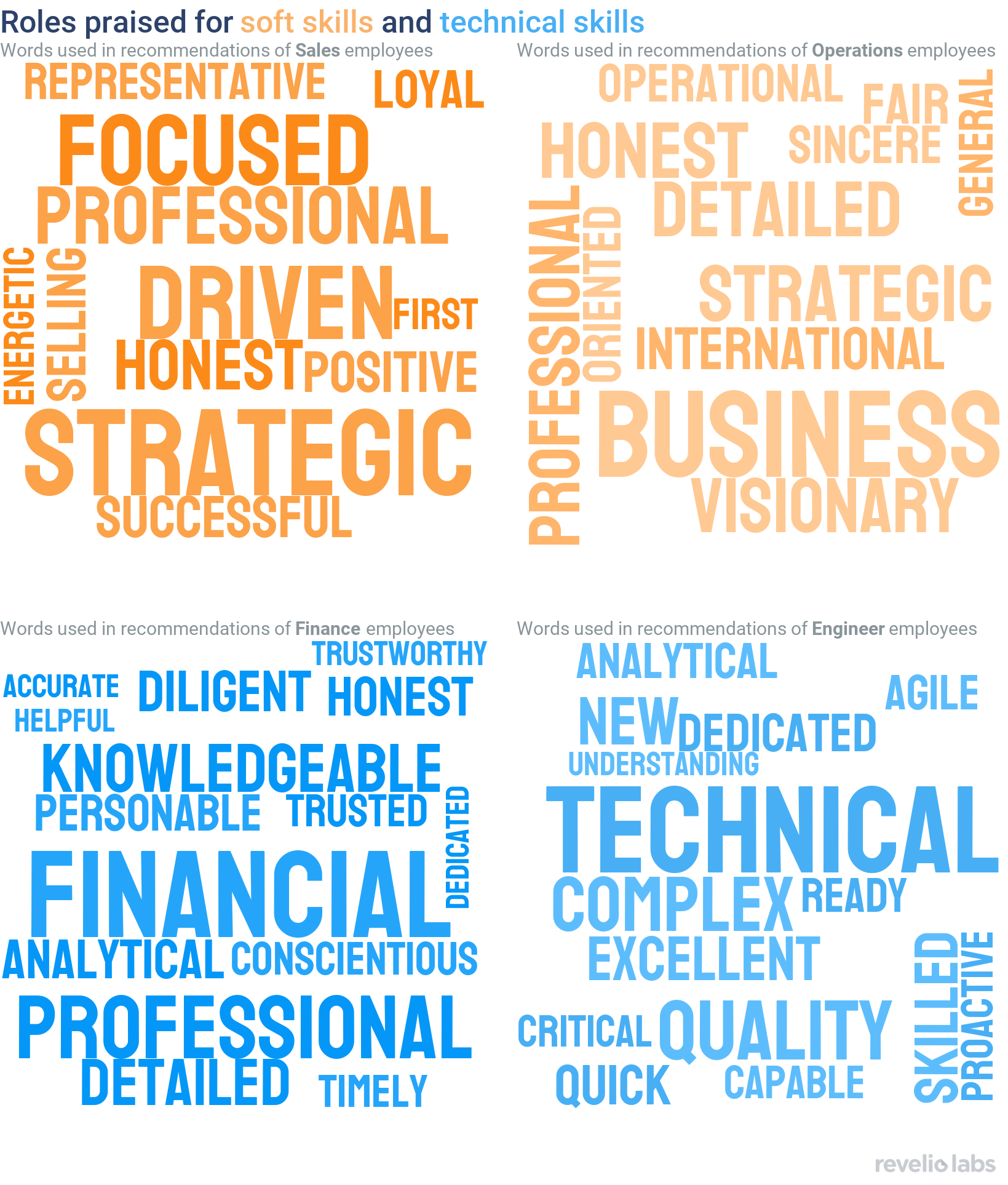Engineers Pass Coding Tests, but How Can You Evaluate Salespeople?
Soft skills are notoriously difficult to screen for, but recommendations are a powerful signal

Workers with recommendations from former bosses or colleagues on their profiles earn higher salaries. The premium is particularly high for Sales and Operations roles.
Sales and Operations value skills that are hard to verify in a recruiting process, where the opinion of a previous boss is a helpful signal to employers. Salespeople are praised for being professional, honest, and driven.
Recommendations for Engineers, on the other hand, tend to highlight their technical skills and ability to solve complex problems..
When hiring for roles that place high importance on interpersonal and soft skills, what is the best way to evaluate whether a candidate is a good fit? You can ask someone who knows them well. Letters of recommendation and references can be an important part of hiring. Frequently, professional online profiles include public recommendations written by former bosses or coworkers.
What makes a great salesperson? And what makes a good backend engineer? They should probably both be organized and reliable but one should also be outgoing yet professional, while the other needs to know the tech stack and solve complex problems. The set of skills for the engineer can easily be elicited through the right set of technical coding tests during the interview process. It is harder to evaluate the needed skills for a salesperson.
In a previous newsletter, we showed that Engineers with recommendations earn on average 20% higher salaries than those without recommendations. But not all roles have the same return to having a recommendation, and Engineers actually have among the lowest returns. The emerging pattern is striking: We find that roles with high levels of soft skills that are hard to verify and test for tend to have particularly high salary premia for having a recommendation. Salespeople with a recommendation have on average 34% higher salaries than those without, while Finance roles only about 10% more.


Sign up for our newsletter
Our weekly data driven newsletter provides in-depth analysis of workforce trends and news, delivered straight to your inbox!
Much of the difference in salaries can be associated with other ways in which workers with and without recommendations differ—workers with recommendations may be better connected to coworkers or are bold enough to ask for recommendations—that are associated with higher salaries but have little to do with the workers' actual qualities. However, there is little reason to believe that these unobserved differences are stronger for certain roles than others. This suggests that we can learn something meaningful from the relative differences in salary premia across different roles.
The roles with the highest returns to recommendations all tend to value skills like communication, creativity, and professionalism. These are characteristics that are hard to verify but easy to observe when working with a person. This is why future employers find recommendations for these roles particularly useful signals. Finance, Engineering, and Science roles have lower returns to having a recommendation—their most important skills can be more easily tested and observed in the hiring process.
So what characteristics make a software engineer or salesperson praiseworthy in the eyes of their superiors? Looking first at words used most to describe Sales and Operations professionals, we observe that coworkers frequently describe them both as “strategic,” “professional,” or “honest.” Recommendation-worthy salespeople in particular are also often described as “driven” or “focused.” Meanwhile, lauded operations professionals are often called “visionary.”

What about finance and engineering professionals? They are both commonly described as “analytical” and “dedicated.” They are also praised for their technical expertise: financial professionals as being “knowledgeable” and engineers as being “technical” and “skilled.” Notably, finance professionals, too, are often praised for their honesty (another difficult thing to test for).

